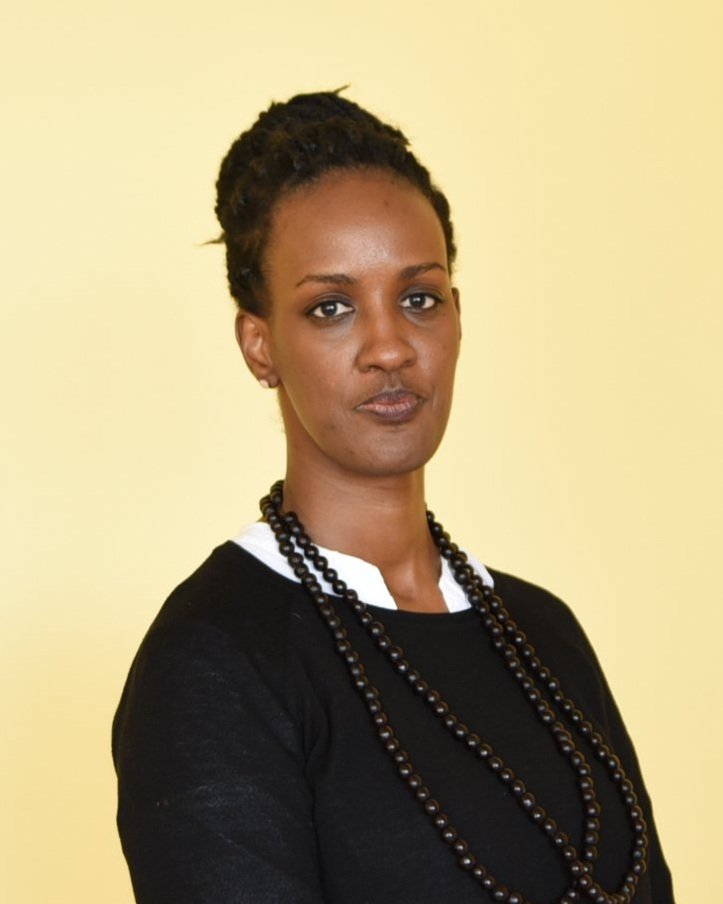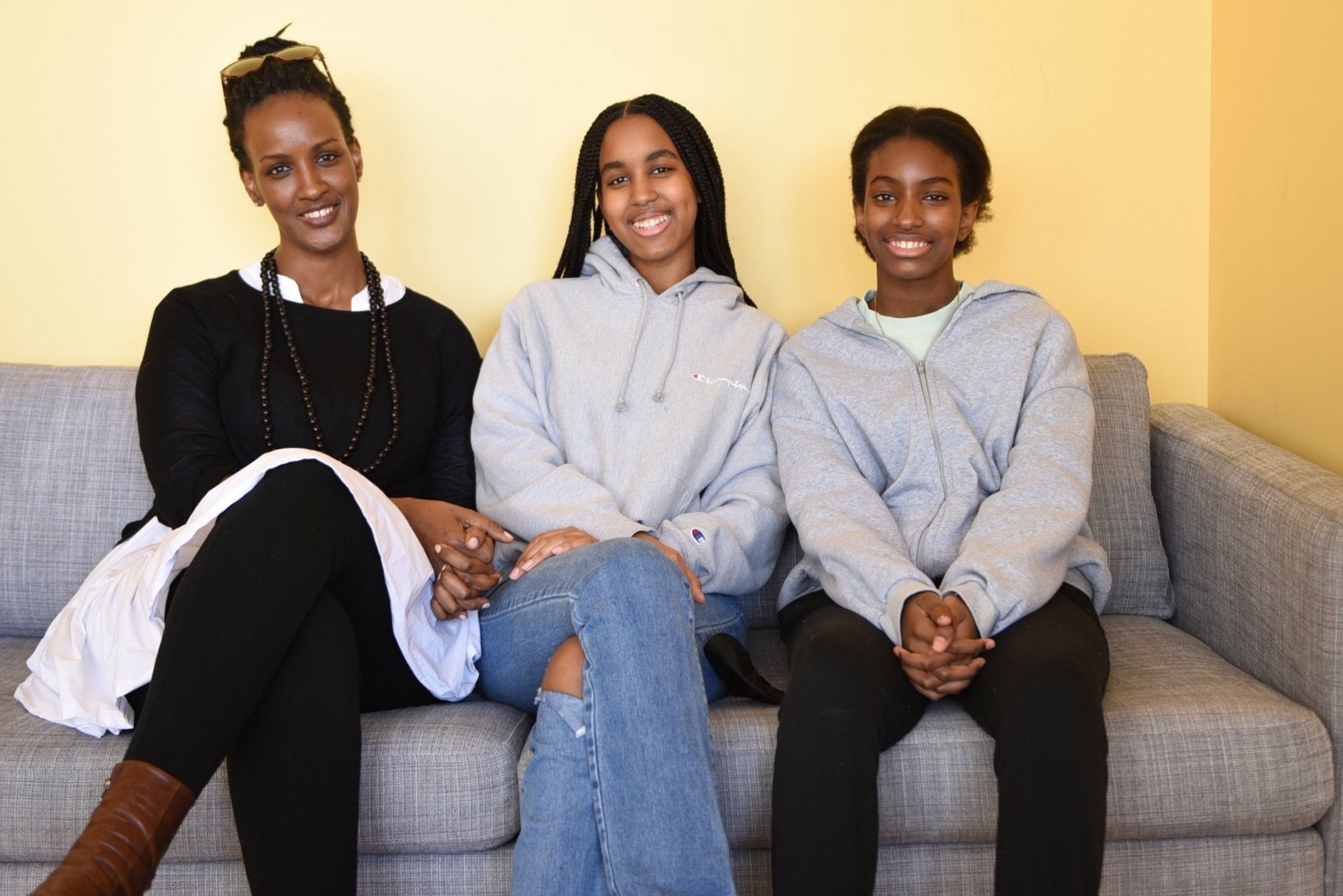Human rights is a core conviction for Amnesty International Canada Secretary General Ketty Nivyabandi
April 15, 2022
A few minutes into the interview with Ketty Nivyabandi, she makes it clear what are some of her non-negotiables.
“Upholding human rights is not a job for me,” she says. “It’s a core conviction, a philosophy and a way of life.”
New in Canada as a refugee after being blacklisted and forced to flee Burundi following a failed coup in 2015, the activist and poet quickly realized that many Canadians were also subjected to injustices.
“When I got here, I was so focused on my own country,” she said. “I have worked with women around the world who are focused on building peace and I have always believed that we are interconnected and the injustices happening in other countries bring us together. My interest is in the root causes of these injustices.”
It seemed a natural fit when Nivyabandi became Amnesty International Canada (English Section) first female and first racialized Secretary General in October 2020, replacing Canadian human rights lawyer Alex Neve.
“As an African, a Black woman, a mother and someone who was once homeless, I have a lived experience as all the work and injustices we are talking about are things I have gone through and experienced directly,” she said. “The role resonates with me also because I don’t like to focus on just one element of human rights. I believe they all impact us.”
Just two months after Nivyabandi’s appointment, a large group of current and former Black civil servants launched a lawsuit against the federal government, alleging discrimination and the restricting of federal Black employees from being promoted.
Amnesty International Canada has thrown its full support behind the Black Class Action pursuit of justice for the Black employees.
“Our work tends to focus on major and mass human rights violations by the state,” said Nivyabandi who has family and friends who work with the federal government. “For that reason, this case is very close to us because it speaks about the failure of the federal government towards its Black employees who not only speak about how they were discriminated against, but how their mental health suffered tremendously to the point where they were forced to retire at the lowest levels. Some of the stories are overwhelming and these people need justice.”
The non-governmental human rights organization also supports Black Class Action’s call for the establishment of a designated category for Black employees under the Employment Equity Act.
“There is a provision in the Act for ‘Visible Minority’, but Black folks are invisible,” she said. “There needs to be a separate stream to be able to account for the number of Black employees. What you will find is that a number of other racialized employees are being promoted while Blacks are stuck at the bottom.”
Social activism has been a big part of Nivyabandi’s life. President Pierre Nkurunziza’s decision to run for a third term despite the Burundi constitution’s two-term limit sparked protests and a failed coup that led to government forces reasserting their control over the country.
Nivyabandi, who organized the first women-only protest and founded the Women & Girls Movement for Peace and Security in the landlocked east-central African country, was targeted by security forces for her activism after a government crackdown on protests.
Fearing for her life and eager to reunite with her two daughters in exile, she fled to neighbouring Rwanda before joining her children in Kenya.
Ketty Nivyabandi and her daughters Ingabire (c) and Irema Bikura (Photo by Ron Fanfair)
“When that coup failed, the government became very repressive and they claimed that people like me who had protested peacefully were aligned to the coup which was false,” she said. “I went into hiding until the borders that were closed reopened. Once that happened, I knew that I had to be with my children. I went back to my house, got a few things, closed the door and took off, thinking I would be back in a few weeks.”
It has been seven years since Nivyabandi, who addressed the 2019 Geneva Summit for Human Rights & Democracy and was a Nobel Women’s Initiative staff member, left her home.
“If it were not for my children, I would not have left Burundi,” she said. “I love my country. Seeking asylum and surrendering my passport was the worst day of my life.”
Having a sister living in Calgary was the main reason Nivyabandi came to Canada.
“I needed a safe place for a short time, so I thought I was coming for a visit,” she said. “However, the threats I was receiving from my government were so serious that I ended up having to seek asylum.”
After her daughters finished the school year in Calgary, Nivyabandi relocated to Ottawa with her young family.
“That’s where the seat of government is, there are many human rights organizations there and I was still advocating for a peaceful resolution to the crisis in my country,” she said.
Nivyabandi and her daughters lived in a shelter for nearly a year as they tried to settle into their new environment.
“I never try to assimilate,” she says. “I like to adapt. I find assimilating difficult because it suggests an erasure of a part of yourself and blending with a new environment. We bring so much richness. Those first few months were hard. My daughters were uprooted from their home where they have family and friends. There are a lot of assumptions of what life was like in Africa. In many ways, it is a very rich life.
“Winter was challenging (here), but it is the lifestyle that is so different from home. Having said that, I also understood that I had to start life wherever I was. I had to bloom where I was planted and this is currently my home. I need to make the best of it.”
Nivyabandi’s first job in Ottawa was teaching French afterschool in her apartment to a young girl who attended the same school as her daughters.
Though bilingual and qualified, she had a hard time landing a job.
“I applied to positions that I was over-qualified for, but I never heard back from many of the companies,” said Nivyabandi who was born in Belgium where her parents were studying. They divorced when she was very young.
At age five, she moved to the family home in Burundi. When the Burundian civil war broke out, she and her younger sister were sent to France to stay with family friends.
After graduating from the United States International University in 2002 with a Bachelor of Arts in International Relations & Affairs, Nivyabandi helped launch the independently owned Pan Africanist radio station, Renaissance FM.
“This was towards the end of the civil war, so I documented the country’s transition to peace and that fragile moment for every country when it’s starting over,” she said.
Nivyabandi also served as a United Nations Development Program (UNDP) Communications Specialist and worked for four years with the United States Department of State before the 2015 unrest sparked by protests after Nkurunziza announced he was seeking a third term.
Noticing there was a small number of female protesters, she called for women to make their voices heard.
“Though very dangerous, that was a very powerful moment,” she said. “I think it helped to shape women in my country.”
A voracious reader, Nivyabandi is a published French-language poet who represented her country in poetry presentations at the 2012 London Summer Olympics.
She co-established a digital and physical space in Kigali for poets to present their work and, two years ago, received an email from a Swedish composer/conductor, saying he had composed and produced an ensemble that was inspired by two of her poems.
“I started writing quite young as a way to express myself,” said Nivyabandi, who testified before the House of Commons Subcommittee on International Human Rights. “I thought I would have been a novelist, but poetry came naturally as a way for me to process the world. Through this art form, I try to portray truth as I see it, hear it and know it. When you do that, you bring other human beings closer to their truth.”
A decade ago, she edited an anthology of writings to mark Burundi’s golden anniversary.
July 1 marks the 60th anniversary of Burundi’s independence from Belgium.
What gives Nivyabandi hope for her country as she looks on from afar?
“Our people,” she says quickly. “We have had a difficult history with divisions shaped by colonial powers. The roots of our culture are strong despite the challenges of governance. I believe that we have it in us as a people to build a better future. I don’t see any other alternative but to hope.”
Prince Louis Rwagasore, a maternal relative of Nivyabandi, advocated for nationalism and decolonization and was declared Prime Minister in the run-up to independence. He was assassinated in October 1961 at age 29.
“I also come from a line of people that were about resistance,” she added. “At the core of that is standing for the dignity of your people and not allowing anyone to step on that.”







